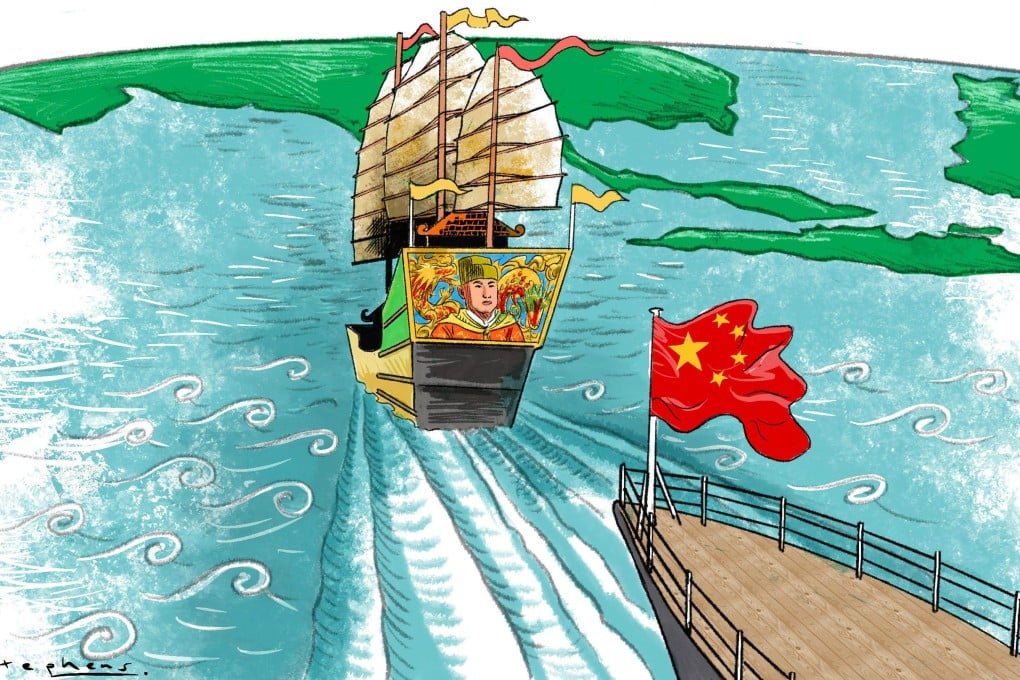Advertisement
Opinion | As Xi Jinping visits Malaysia, lessons from the Ming dynasty could be useful
Trump’s trade war and his imperialistic rhetoric should prompt the Global South to unite in favour of an approach that prioritises engagement
Reading Time:3 minutes
Why you can trust SCMP
6

As Chinese President Xi Jinping visits Southeast Asia, a lesson from the Ming era remains relevant. Without united and open engagement, the Global South risks falling once again to imperialist subjugation.
Following a stopover in Vietnam, Xi arrives in Malaysia on Tuesday on a state visit before concluding his Southeast Asian tour in Cambodia. This three-nation trip comes at a pivotal moment as both the region and the broader international community continue to grapple with the repercussions of US President Donald Trump’s disruptive tariff war. In Kuala Lumpur, Xi and Malaysian Prime Minister Anwar Ibrahim are expected to reaffirm their commitment to working together in response to the escalating global economic crisis.
In late March, with Trump’s tariffs looming, China, Japan and South Korea agreed to continue trilateral economic and trade cooperation. Next month, Malaysia – as chair of the Association of Southeast Asian Nations – will host the Asean-Gulf Cooperation Council summit as these regional blocs move to strengthen their economic cooperation. China has been invited to the summit as a guest.
Advertisement
These developments highlight China’s growing global influence and its increasingly central role in shaping a coordinated international response to Trump’s trade war. Not since the Ming dynasty has the country maintained such extensive international engagement. In fact, the current Belt and Road Initiative follows the maritime trade routes first established during that era.
The expeditions of admiral Zheng He hold special significance in the China-Malaysia relationship, having laid the historical foundation for the countries’ modern ties. This era coincided with the golden age of the Melaka Sultanate, which emerged as a thriving hub of international trade, drawing merchants from the Middle East, South Asia and East Asia.
Advertisement
A little-known fact about Zheng He is his Hui Muslim heritage. The admiral’s background highlights the rich cultural diversity of Ming China, where Islamic and Confucian traditions coexisted. Some historians even credit his voyages with contributing to the spread of Islam in Southeast Asia.
Advertisement
Select Voice
Select Speed
1.00x
